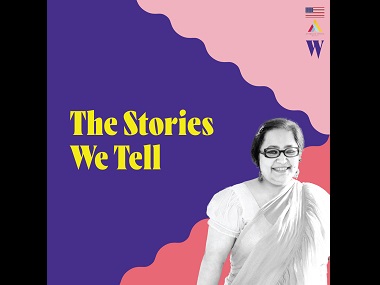Since 2005, the percentage of Indian women in paid work has dropped from 35 per cent to less than 24 per cent, but no one is talking about why. Till we did, and ‘ Women in Labour’ was born (pun intended). A comedic take on a serious issue, the ‘Women In Labour’ podcast explores topics related to women, work, family, power, and everything in between. Why do Indian women do the most unpaid work in the world? What’s stopping us from finding our inner bosses? Why do we preface our work emails with “I was just wondering…”? And the big one — what’s keeping us away from India’s workplaces? We — Aditi Mittal and Christina MacGillivray — converse with a roster of guests on our podcast in an attempt to answer these questions. *** Episode 13 | ‘The Stories We Tell’ “Movies where women’s issues are discussed become referendums on the issue: should women work or not? Should women be attacked or not? They’re never about women’s lives.” In this episode of ‘Women in Labour’, filmmaker Paromita Vohra talks about adopting a narrative that is independent of the patriarchy. And of deciding for ourselves as to who we are and who we want to be. Paromita Vohra is a filmmaker, writer, and dedicated antakshari player, whose work explores urban life, popular culture, love, desire, and feminism. She is the founder and creative director of Agents of Ishq, India’s best-loved website about sex and desire. She has directed pioneering films like Partners in Crime, Morality TV and the Loving Jehad, Q2P, Where’s Sandra, Cosmopolis: Two Tales of a City, Un-limited Girls, and The Consent Lavani among others. She has also directed the television series Connected Hum Tum, written the feature Khamosh Pani, the play Ishqiya Dharavi Ishtyle, and the comic Priya’s Mirror. Both her fiction and non-fiction writing have been widely published, and she writes a weekly opinion column titled ‘Paronormal Activity’ for the Sunday Midday. Listen to the episode here. _**Listen to more episodes here**_
In this episode of Women In Labour, filmmaker Paromita Vohra talks about adopting a narrative that is independent of the patriarchy. She also stresses on women deciding for themselves as to who they are and who they want to be.
Advertisement
End of Article


)
)
)
)
)
)
)
)
)



